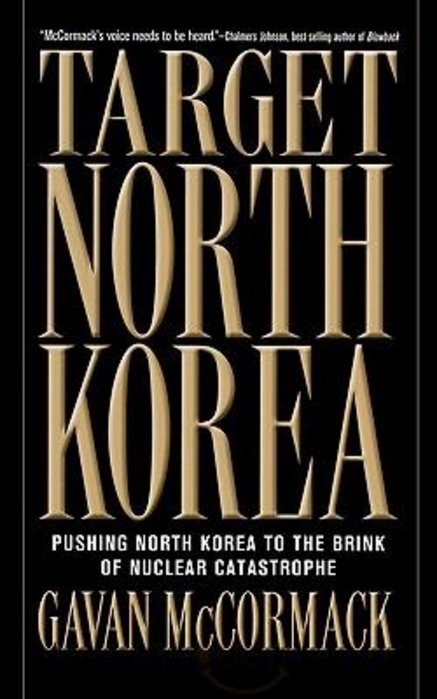North Korea Coming in from the Cold
By Glyn Ford
BRUSSELS — In a vital move toward securing greater stability, North
Korea announced last week it would return to the six-party talks in
Beijing with the United States, China, South Korea, Japan and Russia to
try to resolve the nuclear crisis on the Korean Peninsula. The breakdown
in negotiations had been triggered most recently by U.S. claims that
North Korea had a secret enriched-uranium program to produce nuclear
weapons.
Who blinked? It is not entirely clear. While North Korea has been under
enormous pressure from its neighbors to return to the talks, compounded by
its own internal economic problems, Pyongyang’s prime objective has been
to get the U.S. to accept the idea of a changing regime rather than regime
change.
Kim Gye Gwan, North Korea’s chief negotiator at the talks, states that
Christopher Hill, the State Department’s new negotiator, has confirmed a
shift in U.S. policy.
At the same time, South Korea has seized the agenda from the U.S. Seoul’s
minister of unification, Chung Dong Young, recently met with North Korean
leader Kim Jong Il in Pyongyang. During this meeting an offer was put to
Kim that, subject to a settlement of the crisis, the South would provide
the North with electricity.
Chung’s perception of Kim was that he was a decisive, rational leader
whose word could be accepted. Kim is studying the proposal. The idea is
that the next round of talks will aim for some framework agreement between
the parties.
In exchange for all nuclear-weapons programs being dismantled step by step
with inspection and verification at each stage, the other five parties
will offer multilateral security guarantees to the North, and South Korea
will immediately commence the promised assistance in the interim.
While awaiting the construction of the necessary power grids in the North,
the South will supply heavy fuel oil to the North as an alternative energy
source.
Why might the North accept? After all it would compromise national
sovereignty in a fundamentally irreversible manner. The reason is economic
and regime survival.
After the collapse of the Soviet Empire, North Korea faced an economic
crisis as more than 3 billion euro in barter trade disappeared overnight.
Compounded by a series of natural disasters and a half-century U.S.
embargo, the North’s economy went into meltdown, triggering the 20th
century’s most intense humanitarian catastrophe.
If last Boxing Day’s tsunami killed 300,000 people, North Korea lost 10
times as many in the 1990s. Three million died of slow starvation, one in
eight of the population. And it is not over yet. It is estimated that 37
percent of children under the age of 6 in the North suffer from chronic
malnutrition, leaving them stunted and brain damaged.
South Korea and others want North Korea to have a soft landing. An
imminent collapse could lead to war on the Peninsula at worst, and at the
very least a humanitarian disaster. The landing will be closer to Hanoi or
Beijing rather than Seoul. Since 2002, Kim has tried to walk the tightrope
between being Mikhail Gorbachev and Deng Xiaoping, who said, “black cat,
white cat, who cares as long as it catches mice.”
In the summer of 2002, wage and price reforms introduced the market to
North Korea, where previously food and other essentials were delivered by
the state through the People’s Distribution Service (PDS). Twelve months
later farmers were set lower targets for delivery and permitted to sell
their surplus in new official markets, a move that increased productivity
“more effectively than fertilizer,” as a vice minister of state planning
put it. Last year the state plan was abandoned in most industrial sectors,
allowing factories to fire and hire at will and increase their own
production.
Overall the system has been radically changed in a way that is impossible
to reverse. Now people receive less than half of their essential food
through the PDS and have to bridge the gap through family, humanitarian
assistance or the market. Since last September, in Pyongyang rice prices
have increased from more than 400 won per kilogram to between 770-880 won
(the PDS price is 60 won per kilogram), while the exchange rate for the
euro has gone from 1,450 to 3,050 won.
Although the new middle class has access to a range of goods that were
previously unobtainable, a family of four with two working can barely feed
itself.
Song Gin Nam of the Pyongyang Cabinet’s Economic Research Institute, which
recently won the battle for control of the economy with the Korean Workers
Party, concedes that the latest reforms were “a success, but not a big
success,” drawing the lesson to go forward, not back.
North Korea is signaling its future direction by applying to join Iraq and
Iran as observers at the World Trade Organization. If the North can find a
settlement in next week’s talks in Beijing, there may be hope that the
last survivor of the Cold War standoff can be brought in from the cold.
Glyn Ford, a member of the European Parliament (southwest England), has
just returned from the first official European Parliament Delegation to
North and South Korea.
This article appeared in The Japan Times: July 23, 2005. Posted at Japan Focus on July 23, 2005.




